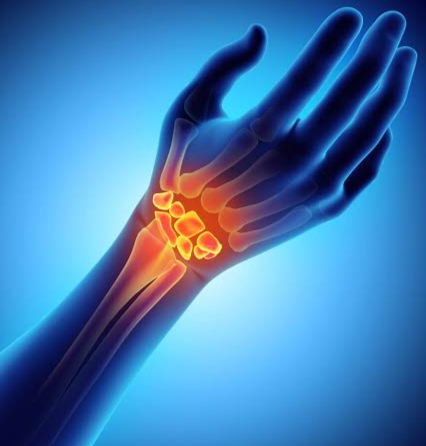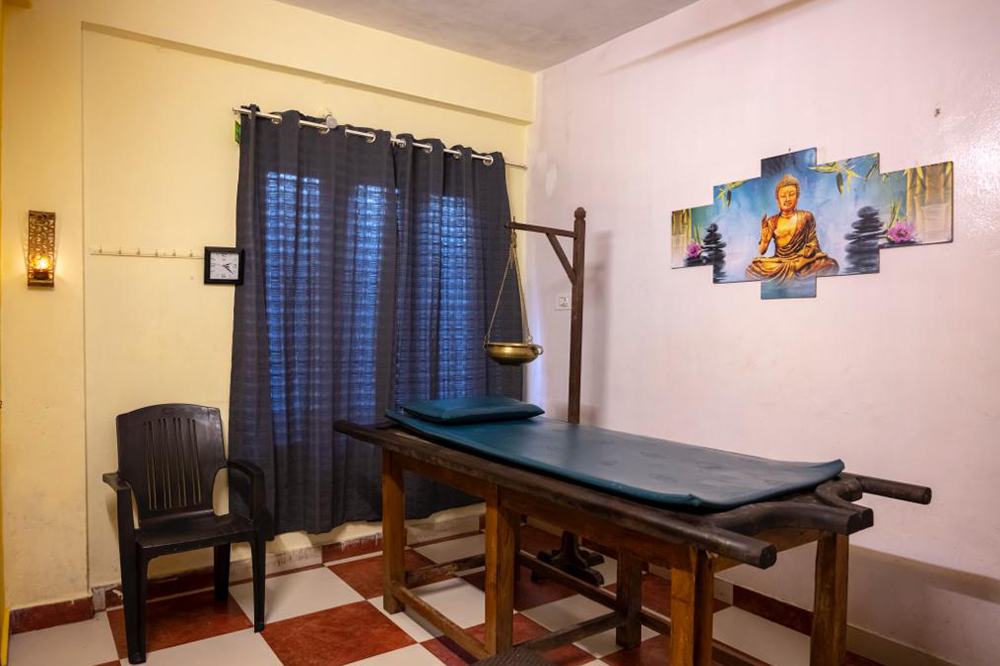Understanding Carpal Tunnel Syndrome:
Carpal Tunnel Syndrome (CTS) stands as a prevalent and discomforting condition affecting the hand and wrist, predominantly arising from the compression of the median nerve as it traverses the carpal tunnel. Within this confined space, the median nerve, accompanied by several tendons, experiences constriction due to swelling or degeneration, resulting in the characteristic symptoms associated with CTS. In this blog, explore the transformative potential of Ayurveda treatments for Carpal Tunnel Syndrome, unlocking holistic healing pathways for your wrist discomfort.
Manifestations and Symptoms:
Manifesting in various forms, the symptoms of Carpal Tunnel Syndrome can include pain, numbness, tingling sensations, and weakness primarily in the thumb, index, and middle fingers. These symptoms often extend along the arm, occasionally reaching the elbow. Accompanying sensations of burning, tingling, and discomfort in the affected area create hindrances in performing routine tasks requiring hand dexterity and strength.
Risk Factors and Contributing Elements:
Numerous factors contribute to the increased risk of Carpal Tunnel Syndrome, including the nature of one's occupation, pre-existing health conditions such as diabetes, hypothyroidism, arthritis, and chronic alcoholism. Furthermore, activities involving repetitive hand movements, prolonged periods of typing, or continuous use of vibrating tools may elevate the likelihood of developing this condition.
Ayurvedic Perspective on Carpal Tunnel Syndrome:
In this realm, Ayurveda treatment for Carpal Tunnel Syndrome is perceived as a Vata imbalance ailment, intrinsically linked to the depletion of muscle tissue or "mamsa kshaya." According to this ancient holistic philosophy, the aggravation of the Vata dosha plays a pivotal role in the manifestation of this syndrome. Various factors contribute to this imbalance, including the consumption of unctuous or cold foods, excessive physical exertion, trauma, injuries, and the suppression of natural urges.
Holistic Ayurvedic Approach to Treatment:
The Ayurvedic approach to managing Carpal Tunnel Syndrome embodies a multifaceted treatment methodology. This holistic system focuses on external applications, internal medications, Panchakarma therapies, and specific Ayurvedic lifestyle adjustments to address the condition comprehensively.
External Therapies and Pain-Relieving Techniques:
External therapeutic measures include Swedana, a localized fomentation technique encompassing methodologies like Dhanya Sweda, Dhanyamla Dhara, Patrapotala Sweda, Pichu with Ksheerabala Thailam, Shashtika Shali Pinda Swedam, and Talam with Kachooradi Choornam and Nimbamruthadi Eranda Tailam. These procedures aid in alleviating discomfort and reducing swelling, thereby facilitating relief.
Ayurvedic Lifestyle Adjustments for Managing Symptoms:
Furthermore, Ayurvedic treatments for Carpal Tunnel Syndrome involve pain-relieving lepas (poultices) and Agnikarma (thermal cauterization) to address the pain and tingling associated with CTS. The comprehensive approach encompasses ayurvedic diet adjustments and behavioural modifications to manage and prevent aggravation of symptoms. It is recommended to avoid food items that exacerbate Vata dosha imbalance, such as cold and dry foods, as they can intensify the symptoms. Similarly, moderation in physical exercise is advised, as excessive movement could potentially exacerbate the condition. Engaging in oil massages targeted at the affected area serves to pacify the aggravated Vata dosha, thus offering relief.
Restorative Practices and Holistic Well-being:
In the journey towards managing Carpal Tunnel Syndrome through Ayurveda, individuals are encouraged to embrace restorative practices, including adequate rest, promoting the body's innate healing capabilities.
Understanding and addressing Carpal Tunnel Syndrome through an Ayurvedic lens underscore the significance of harmonizing the body's vital energies and treating the underlying imbalances. The holistic nature of Ayurvedic treatment strives not only to alleviate symptoms but also to restore overall balance within the body and mind. This ancient therapeutic approach embodies a comprehensive paradigm aimed at enhancing overall well-being and quality of life.
Seeking Professional Guidance in Ayurvedic Treatment:
In the pursuit of integrating Ayurvedic methodologies for Carpal Tunnel Syndrome, engaging with certified Ayurvedic practitioners or medical experts is paramount. Collaborating with professionals well-versed in Ayurveda ensures access to personalized guidance and bespoke treatment strategies specifically tailored to address individual needs. These experts possess comprehensive knowledge and expertise in Ayurvedic principles, empowering them to discern and devise targeted therapies that best suit the unique symptoms and underlying factors of Carpal Tunnel Syndrome in each individual. Consulting with proficient practitioners guarantees a holistic and efficacious approach to managing this condition through Ayurveda. Their guidance encompasses a range of specialized treatments, dietary recommendations, lifestyle modifications, and therapeutic practices, all finely tuned to harmonize the body's energies and restore balance. By seeking the assistance of qualified professionals in Ayurveda treatments for Carpal Tunnel Syndrome, individuals can embark on a transformative journey toward alleviating discomfort, enhancing recovery, and fostering holistic well-being in their struggle against Carpal Tunnel Syndrome.
FAQ's
Q1. What are the complications of carpal tunnel syndrome?
- Atrophy of muscles
- Weakness of muscles
Q2. What are the investigations can be done for carpal tunnel syndrome?
- X-rays
- Nerve conduction study
- Electromyography
- Q3. Does yoga improves carpal tunnel syndrome?
Carpal tunnel yoga exercises are an effective way to get rid of the symptoms of carpal tunnel syndrome.
Some of the yogasanas are:
- Ustrasana(cat cow pose)
- Lotus pose
- Upward facing dog pose
- Bharadhwaja asana
- Prayer pose
- Finger lock position


























